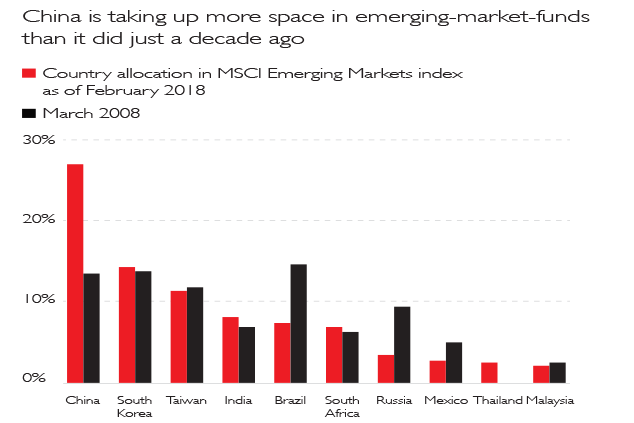
In 2008 Chinese companies comprised 9% of the key benchmark for emerging-market funds, the MSCI Emerging Markets index, says Nir Kaissar on Bloomberg Gadfly. Today, its companies make up 27% of the index. And no wonder, when the International Monetary Fund expects China’s economy to surpass America’s in a decade. Nonetheless, China doesn’t set the tone for other markets. There is little correlation between Chinese stocks’ performance and those of other developing-country indices; the same goes for links between China and developed markets. So any jitters over creeping authoritarianism shouldn’t hamper other major equity indices. “What happens in China is likely to stay in China.”
Viewpoint
“Will the Beast from the East and Storm Emma have an impact on the economy?… Weather-related disruption usually has a minimal effect. There are exceptions. The first sign Britain’s post-crisis recovery would be a long… haul came in early 2011, when the ONS released [GDP] data for the fourth quarter of 2010. It showed a 0.5% fall on the quarter, with the ONS attributing the drop to weather effects. December 2010 had been snowy… The figures did not prevent three members of the Bank of England’s monetary policy committee (MPC) voting to raise interest rates in February 2011. Some who were on the [MPC] at the time say there would have been a majority for an increase if not for the drop in GDP. Thus did snow intervene in monetary policy, delaying the start of the normalisation process for interest rates by many years… The ONS now thinks that GDP rose by 0.1% in the key quarter, rather than falling 0.5%.”
David Smith, The Sunday Times